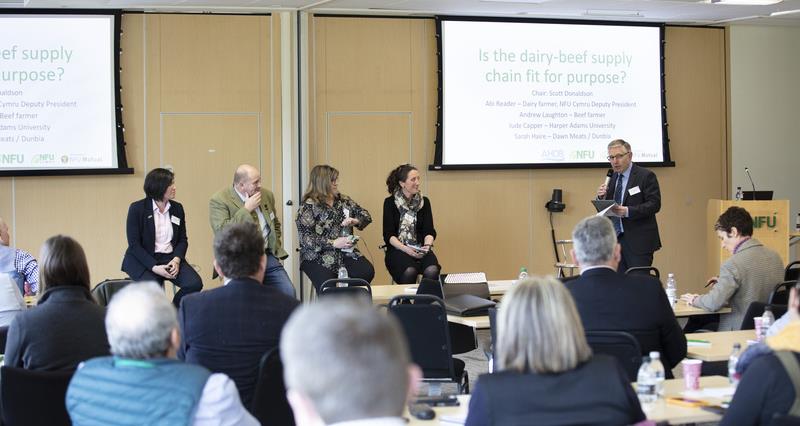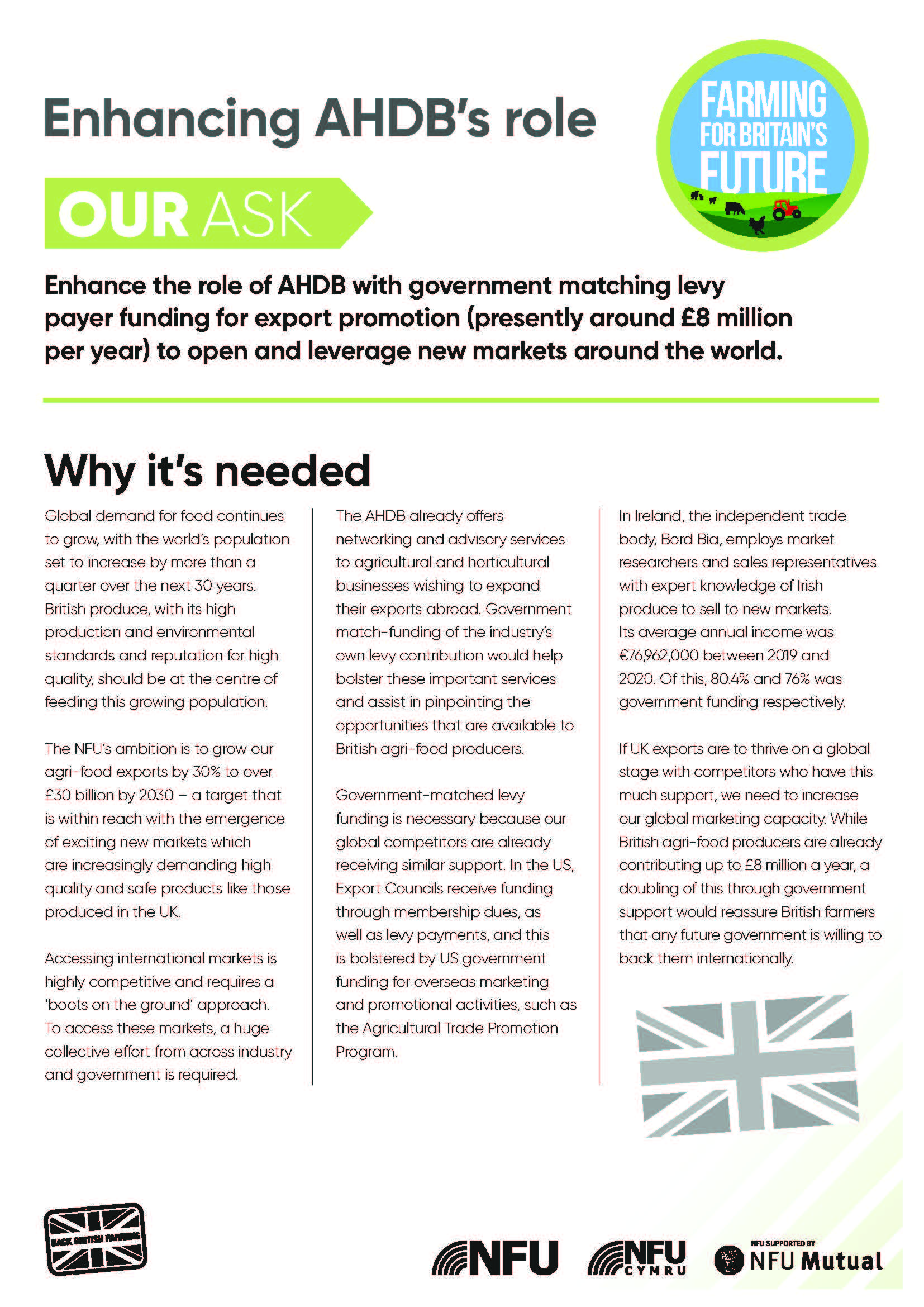The event, which was hosted at NFU headquarters, follows on from the 2019-23 GB Dairy Calf Strategy which was spearheaded by the NFU together with AHDB.
Progress to date
Jenny Gibbons of AHDB and Marianne Combe of the NFU’s bTB team outlined the progress of the GB Calf Strategy to date. The strategy came about as an industry response to adverse media coverage of the culling of dairy bull calves. Its aim was to eliminate bull calf euthanasia by 2023 and to ensure all calves were raised with care.
GB Calf Week was introduced, and the amount of sexed semen sales has gone up to 76% by 2023, and beef semen sales had doubled. In the past ten years, registrations of dairy-beef calves have risen by 77% and those of dairy bulls has fallen by 65%.
Industry reputation
Amy Jackson of Oxtale Communications asked if the reputational risks to the industry were as black and white as we think. An expert in crisis management, she stressed that as far as the public is concerned, a cow is a cow and they view them as an iconic part of rural life but do not understand the difference between dairy and suckler cows. This means that reputational damage to one section of the industry will bleed into the other.
Amy stressed that the industry needs to create the reality it wants to be known by. It must be transparent and responsive to issues and be seen to be acting when problems arise. “Reputation is money in the bank, it is insurance – it gives resilience during the bad times,” she added.
Scrutinising the supply chain
Scott Donaldson, managing director of Harrison and Hetherington, chaired a panel session which asked if the dairy-beef supply chain was fit for purpose. Delegates heard that dairy beef should be considered a co-product, not a by-product and standardising terminology was one way to bolster the sector.
Sarah Haire from Dawn Meats/Dunbia said that all carcasses looked the same once the hide had been removed, but from a processor’s point of view consistency was the key to profitability. Several members of the audience pointed to dairy beef cows weighing 220kg going to slaughter in a system that is configured to process 260kg beef carcasses. Dairy beef calves must meet specifications, the meeting heard.
Jude Capper from Harper Adams University stressed the importance of data in making evidence-based decisions to select optimal systems for welfare, productivity and the environment.
A call for supportive bTB policies
NFU Cymru Deputy President Abi Reader talked about the stressful years when her family’s dairy farm was hit by bTB. She said dealing with the calves caused the most stress to staff and the animals.
Abi called on the industry to join forces to lobby Defra to remove restrictive bTB policies that hinder farmers’ businesses, such as increasing the filling period for calves moving to TB Isolation Units from TB breakdown herds from 42 to 90 days and moving calves off farm to Approved Finishing Units earlier.
She said focusing on a healthy calf and genomics were two easy wins that could lead to gains for the sector.
David Barton said that the discussions throughout the event all highlighted the great need for the delayed Livestock Information Service, with the data gathered proving hugely valuable to both the livestock and dairy sectors.
After lunch, the delegates split into breakout session that delved deeper into the issues, but this session was covered by the Chatham House Rule to facilitate freer discussions. All the breakout groups agreed that collection and communication of data between dairy farms and livestock farms are key to making a more efficient and transparent dairy-beef supply chain.
More from NFUonline:
See our manifesto asks
Our manifesto
Our general election manifesto – Farming for Britain's Future – outlines our key asks of the next government to ensure farmers and growers can continue to deliver for the environment, economy and local communities while producing more of the great British food we all enjoy.

